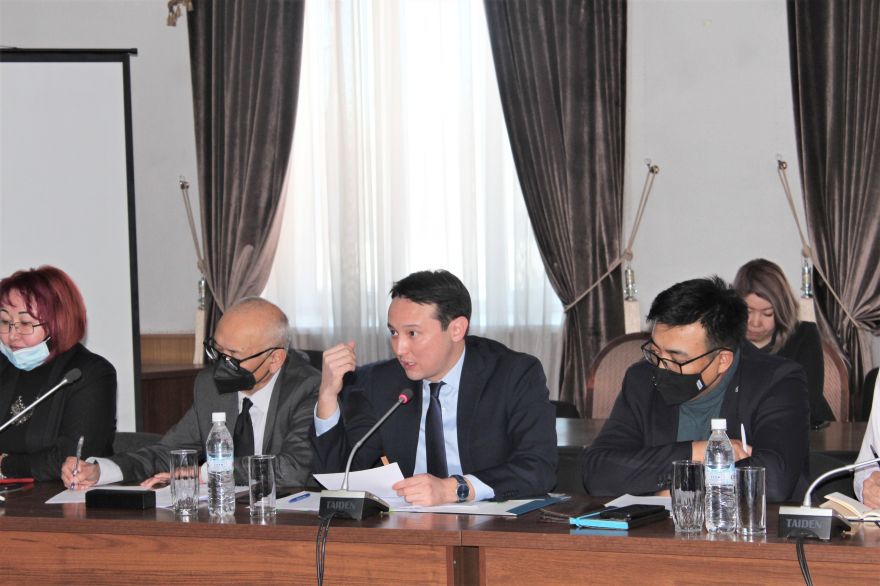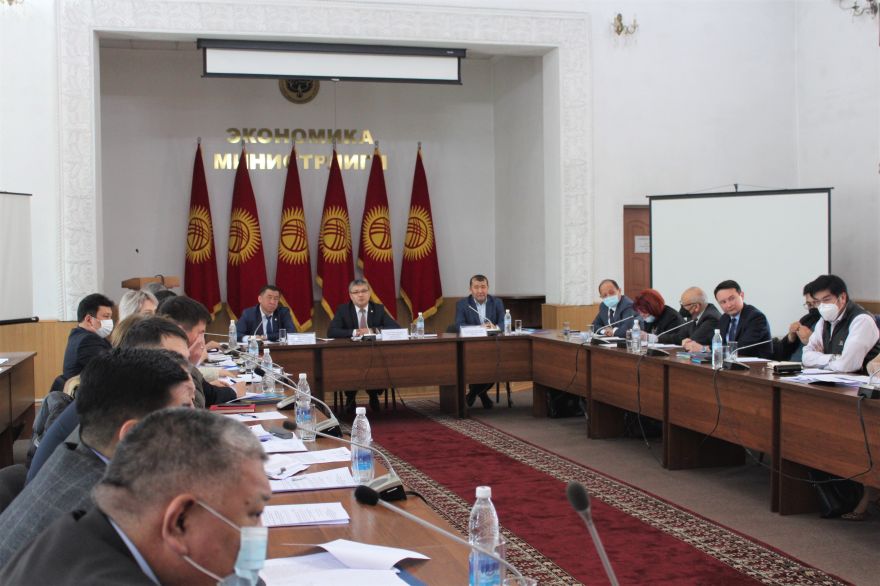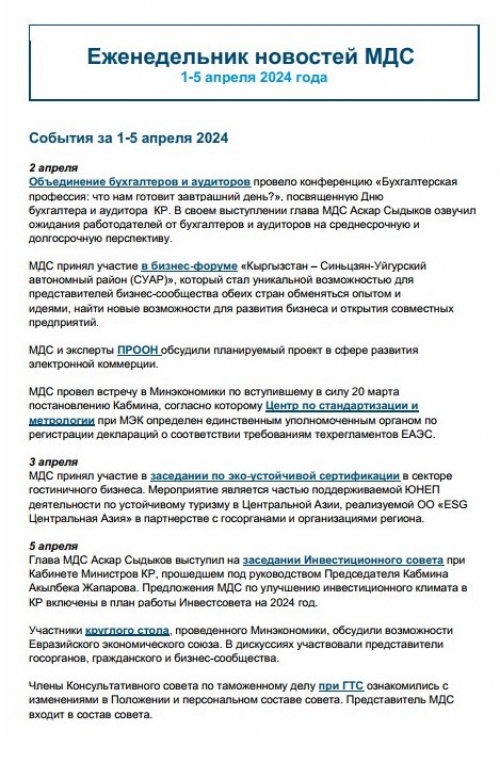News /
IBC news /
It is necessary to introduce responsibility for obstruction of legitimate business activities, IBC says
“Based on the international experience, it is necessary to introduce criminal liability for obstruction of legal entrepreneurial activity into legislation,” said Askar Sydykov, Executive Director of the International Business Council, today at a meeting at the Ministry of Economy and Finance of the Kyrgyz Republic.

Representatives of the President’s Office, the Prosecutor General's Office, relevant ministries and departments, law enforcement agencies and the business community discussed the implementation of the presidential decrees "On the protection of property and support for entrepreneurs and investors" and "On additional measures to protect business entities."
"State agencies and officials should be held liable for compensation for financial and moral damage caused as a result of unjustified criminal prosecution to entrepreneurs who have received the right to rehabilitation, as well as a result of unjustified detention and investigative actions including search, seizure of documents and seizure of property," said the IBC head.
In a short time, it is necessary to take urgent measures to implement the recommendations provided for by the presidential decrees, as well as provide information on their implementation to the business community and the general public.
The decrees are aimed at ensuring the protection of property, eliminating unreasonable and unnecessary interference of authorized bodies in the activities of business entities. This will create favorable conditions for business development, increasing investor confidence, improving the investment climate and business environment.
At the meeting, the IBC head voiced proposals from businesses to protect investments, entrepreneurship and help restore the economy of Kyrgyzstan.
Business also recommends analyzing the assessment of the damage caused to the state as a result of the suspension, reduction or termination of the activities of enterprises; job cuts; capital outflow, investment, decrease in investment inflow; deterioration of the position of the republic in international ratings as a result of the actions of law enforcement, supervisory and judicial authorities of the republic.
Until the epidemiological situation stabilizes and the internal political processes are completed, it is proposed to consider the possibility of completely limiting the initiation of pre-trial proceedings against entrepreneurs for offenses not related to the protection of life and health, and public safety. It may be necessary to suspend the current proceedings against such persons and change the preventive measures in current cases against business representatives to non-custodial measures.
“It is necessary to revise the indicators of the efficiency of the tax and customs services, law enforcement and supervisory authorities,” Askar Sydykov. “The priority should be indicators on the number of new enterprises (taxpayers) created, on the quality of tax administration based on the Doing Business rating, rather than indicators of collected taxes and fees. The index of transparency and ease of customs administration is more important than the volume of collected customs payments”.
When assessing the activities of law enforcement, fiscal, supervisory and judicial authorities, it is important to exclude the priority of the indicator of funds reimbursed to the state, putting in the first place the indicator of a decrease in the shadow economy, an improvement in the country's position in international ratings of perception of corruption, as well as the level of public confidence.
























